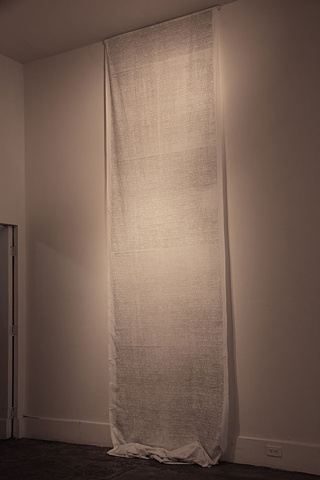2012 BFA Senior Thesis: Out of Many, Down to one
The term "Dirty War" originates in the military junta itself, which claimed that a war, albeit with "different" methods (including the large-scale application of torture and rape), was necessary to maintain social order and eradicate political subversives. This explanation has been questioned in court and by human rights NGOs, as it suggests that a "civil war" was going on, thereby implying justification for the killings. Thus, during the 1985 Trial of the Juntas, public prosecutor Julio Strassera suggested that the term "Dirty War" was a "euphemism to try to conceal gang activities" as though they were legitimate military activities.
Although the junta claimed its objective to be the eradication of guerrilla activity, the repression struck mostly the general population, and specifically all political opposition, trade unionists (half of the victims), students, and other civilians. Many others were forced to go into exile, and many remain in exile today (despite the return of democracy in 1983).
The US State Department documents obtained by the National Security Archive under the Freedom of Information Act show that in October 1976, Secretary of State Henry Kissinger and high-ranking U.S. officials gave their full support to the Argentine military junta and urged them to hurry up and finish the "dirty war" before the U.S. Congress cut military aid.
The U.S. was also a key provider of economic and military assistance to the Videla regime. In early April 1976, the U.S. Congress approved a request by the Ford Administration, written and supported by Henry Kissinger, to grant $50,000,000 in military support to the Argentine military regime. At the end of 1976, Congress granted an additional $30,000,000 in military aid, and recommendations by the Ford Administration to increase military aid to $63,500,000 the following year were also granted by congress. U.S. military aid to the Videla regime continued on a smaller scale under the successive Carter Administration, despite its open condemnation of the junta's dismal human rights record.
The Reagan Administration, whose first term began in 1981, however, asserted that the previous Carter Administration had weakened US diplomatic relationships with Cold War allies in Argentina, and reversed the previous administration's official condemnation of the junta's human rights practices. The re-establishment of diplomatic ties allowed for CIA collaboration with the Argentine intelligence service in training and arming the Nicaraguan Contras against the Sandinista government. The 601 Intelligence Battalion, for example, trained Contras at Lepaterique base, in Honduras.
